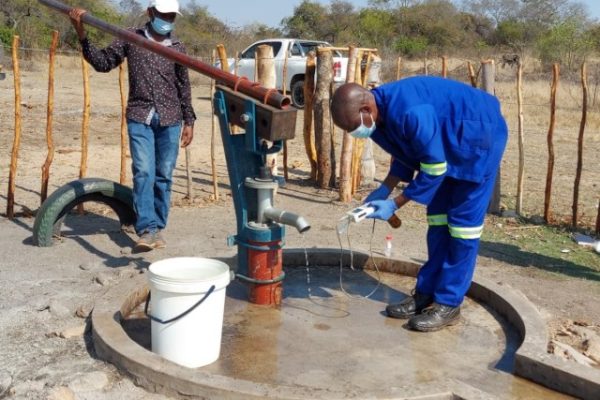
By: Loise Shiimi
The Namibian Agronomic Board (NAB) and South Africa’s National Agricultural Marketing Council (NAMC) have forged a partnership aimed at enhancing regional agricultural development and fostering growth in the agronomy and horticulture sectors.
In an interview with Eagle FM, Emilie Abraham, Horticulture Manager at NAB, explained that the primary objectives of this Memorandum of Understanding (MOU) include promoting cooperation through programs and initiatives that facilitate the integration of agricultural value chains and market opportunities across both countries and beyond.
The MOU seeks to enhance capacity-building for farmer development, share market information, and improve the competitiveness of agricultural trade for both nations.
Abraham highlighted that the agreement also encompasses research and innovation for development, which will promote efficient and sustainable agricultural practices in both countries. “It aims to harmonise marketing standards and technical regulations to ease trade between them,” she said.
On the question of how the partnership would leverage the expertise and resources of both organisations to support farmer development, Abraham noted that the established relationship is symbiotic. The partnership aims to create opportunities for exchange programs involving researchers, farmers, traders, processors, scientists, and experts to address specific needs in the sector.
The MOU focuses on the horticulture value chain in its entirety, with an emphasis on making a tangible impact by supporting farmers grappling with challenges such as access to export markets. “Our vision through this MOU is that within three years, at least two small-scale farmers will be able to export their products outside the country,” Abraham stated.
She pointed to how the MOU would facilitate access to these markets and address technical inefficiencies in certain production areas, sharing how it would allow for the exchange of ideas with small-scale farmers and provide them with exposure visits. Moreover, it would provide them with access to various training and capacity-building initiatives designed to enhance the resilience of their farming ventures.
Regarding the horticulture value chain, Abraham stated that all stakeholders would benefit from the MOU through tailored training programs for small and large-scale traders alike, processors, and primary producers. “Training on agronomic practices will improve quality and marketing strategies, ultimately unlocking markets in both countries,” she added.
When asked how the partnership’s progress and impact will be monitored and evaluated, Abraham mentioned that a steering committee will be established to oversee the implementation of the MOU.
“The signing of this agreement solidifies our collaboration going forward. Our shared goals in the agricultural sector include information sharing, facilitating market access activities, conducting joint research, developing projects, and building capacity to enhance the mandates of both institutions,” she stated.
The NAMC’s vision is encapsulated in the goal of “strategically positioning agriculture within a dynamic global market” listed in its strategic plan.
NAMC chief executive officer, Simphiwe Ngqangweni, stated that this vision aligns with the Department of Agriculture, Land Reform and Rural Development’s (DALRRD) mission to improve agricultural production and stimulate economic development and food security through innovative, sustainable practices. In turn, increasing access to opportunities for youth, women, and vulnerable groups.
This vision also addresses the sustainable agricultural productivity aspect of the DALRRD’s Impact Statement. As outlined in the department’s Strategic Plan for 2020-2026, the NAMC’s vision indirectly responds to the objectives of economic transformation and job creation, aligning with the MOU focused on strengthening regional agricultural development and supporting growth in the agronomy and horticulture sectors.
Finally, Abraham noted the importance of the timing of the MOU, indicating that it coincides with the launch of NAB’s five-year Crop Value Chain Development Strategy.
“This strategy aims to drive developmental agendas across the entire crop value chain. Our collaboration will complement efforts to successfully implement and achieve the objectives of this strategy,” she shared.









